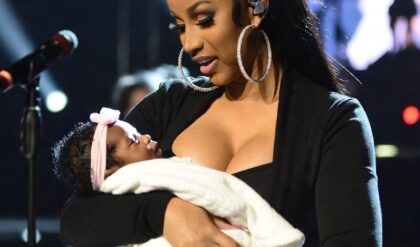Just because the zombies are dead doesn’t mean they can’t have feelings
/cdn.vox-cdn.com/uploads/chorus_image/image/70493595/AllDead_UNIT_498207.0.jpg)
The last decade has been absolutely incredible for zombie representation. The undead community — largely voiceless thanks to decomposed vocal chords — has been the unrelenting focus of one of the most expansive television franchises in recent memory, The Walking Dead. To date, 274 Walking Dead episodes have aired across the main series and two spin-offs, with new series on the way and plenty of episodes to come. It is an incredible achievement and also a suffocating one: any new zombie-themed show must work hard to step out of The Walking Dead’s long shadow. Fortunately, All of Us Are Dead, Netflix’s popular K-Drama import about a zombie outbreak in a Korean high school, pulls it off with a simple trick: It’s not so damn mean.
This doesn’t mean All of Us Are Dead is toothless. It’s a violent, brutal story where the classmates of Hyosan High School’s Class 2-5 slowly watch their friends and teachers turn monstrous and do horrible things to one another. Its large cast (which eventually sprawls to include people from all of Hyosan) allows it to focus on what, specifically, is lost in such a disaster, and what is worth preserving. Through character-focused writing and a strong focus on how its cast relates to each other, All of Us Are Dead never loses its focus on people — even after they turn to zombies.
Focused on the very start of the outbreak, All of Us Are Dead kicks off its zombie apocalypse in a fairly typical fashion. Student Kim Hyeon-ju (Jung Yi-seo) discovers a mouse in the science lab that was experimented on by mysterious and standoffish science teacher Lee Byeong-chan (Kim Byung-chul). When it bites her, the clock starts ticking on the high school around her — and Hyosan as a whole.
:no_upscale()/cdn.vox-cdn.com/uploads/chorus_asset/file/23230669/AllDead_UNIT_7115229.jpg)
Much of what follows is rather formulaic, but what zombie story isn’t? Students and teachers are rapidly infected. Some are cowardly and unwilling to help. Students who realize what’s happening (this is — thank God — a show where people know what zombies are, and even name-drop Train to Busan) begin to suspect their friends who may have been bitten. Emergency personnel succumb to the horde. The plague spreads.
All of Us Are Dead commits to making all these familiar aspects exciting: There’s a physicality to the camerawork and choreography that provides plenty of holy-shit moments, both thanks to fight scenes (the more athletic students of Hyosan High School are very happy to beat the hell out of some zombies) and gory horror, and while it’s wide scope does get a little too wide at times, sprawling outward into Hyosan proper let’s the series loosen up and introduce some variety.
All of this is ancillary, though. What All of Us Are Dead spends most of its time on is relationships. How Na-yeon (Lee Yoo-mi), in the privilege and arrogance that comes from wealth, is more likely to tear others down than help them survive. Or how Su-hyeok (Lomon), a former delinquent without much academic prospects, secretly crushes on Nam-ra (Cho Yi-hyun), the class president.
The series layers in these relationships, flashing back to moments they were bullied, petty cruelties and small kindnesses, acts that reverberate into the present, making this apocalypse a very specific one for these characters.
:no_upscale()/cdn.vox-cdn.com/uploads/chorus_asset/file/23230667/AllDead_UNIT_1183090.jpg)
This focus on character gives All of Us Are Dead a different moral texture than shows in The Walking Dead mold. The former illustrates the fundamental human desire to cooperate in times of crisis, and how unkindness and a lack of empathy in everyday life can rot and make that necessary cooperation difficult. The Walking Dead’s moral universe — with its endless parade of groups that turn to depravity in order to survive, and its constant redrawing of ethical lines — is a fundamentally mean one, where might frequently makes right. It’s a prepper fantasy uninterested in society or culture, and while there have been exceptions (the fifth season of spin-off series Fear the Walking Dead is specifically built around characters trying to help others) the franchise never overcomes the bleakness of its season 1 revelation that the eponymous Walking Dead is everyone. Its zombie plague is in all of us, waiting for death to turn humans into something else.
All of Us Are Dead takes its time revealing the specifics of how its zombie virus works, but it makes its take on the metaphor clear early on: It’s what happens when the will to survive isn’t tempered by humanity, and the natural endpoint of casual cruelty on every level — from school bullies to uncaring bureaucrats in government. It’s a show that argues that we should root for the living, because maybe we’ve forgotten how.





